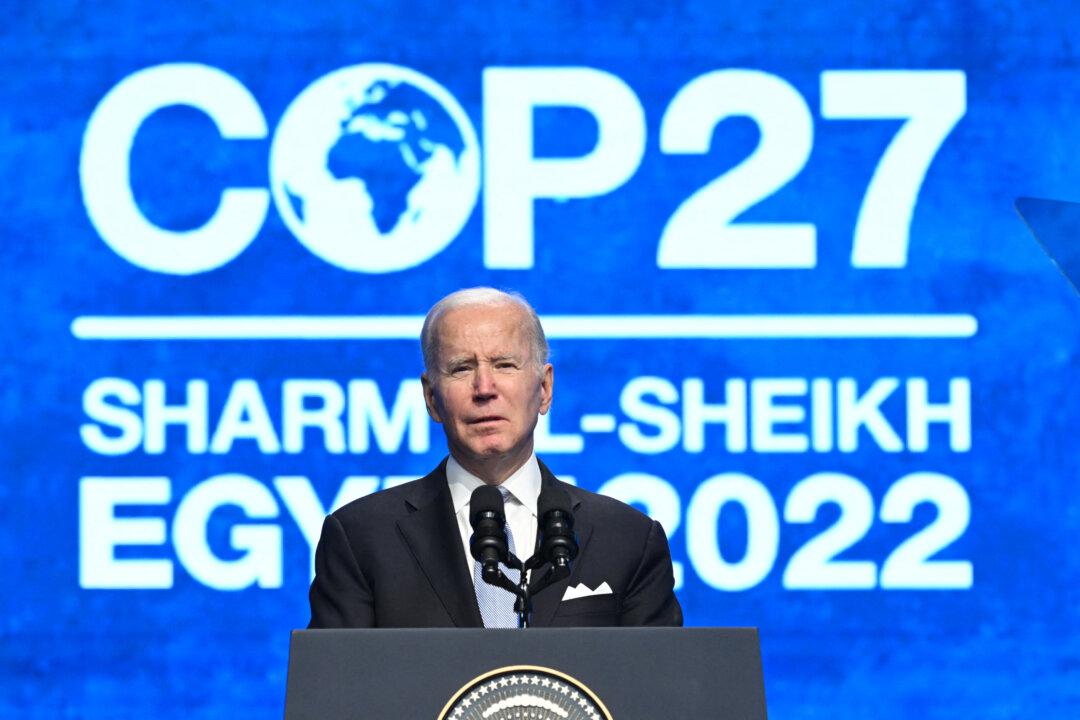Commentary
On Nov. 20, officials at the 27th Conference of the Parties to the United Nations Framework Convention on Climate Change (COP27) agreed to form an international fund to promote “climate justice” by implementing “climate reparations.”

On Nov. 20, officials at the 27th Conference of the Parties to the United Nations Framework Convention on Climate Change (COP27) agreed to form an international fund to promote “climate justice” by implementing “climate reparations.”